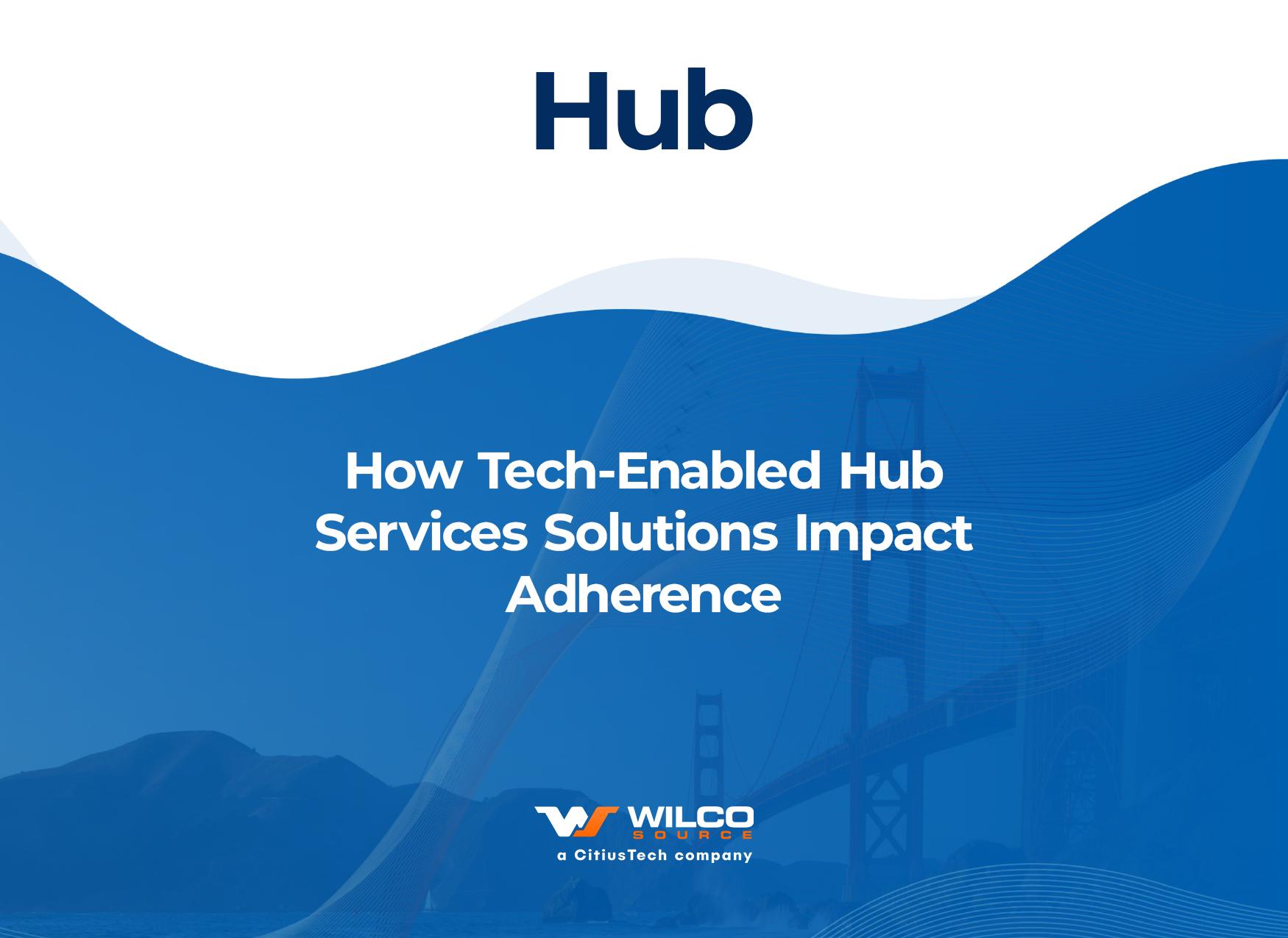How Tech-Enabled Hub Services Solutions Impact Adherence

Specialty drugs represent only a small fraction of the total prescription drug volume, yet account for upwards of 50% of national drug spending. With specialty drug prices anticipated to rise and the sales projected to grow to as much as $217 billion by 2024, it’s more important than ever for specialty pharmas to demonstrate positive patient outcomes. This makes sense, as clinical outcomes data can help justify the high cost and prove efficacy.
Still, there is one major barrier to positive clinical outcomes and therapy success: drug adherence. There are a number of factors that contribute to treatment plan abandonment including a lack of prior authorization support, proactive patient outreach, clinical monitoring and refill reminders.
To overcome these barriers and improve therapeutic outcomes, tech-enabled hub services platforms have become an important part of the specialty pharma business model. Cloud-based technologies like Salesforce Health Cloud are now being used to bring greater efficiency and automation to all of these moving components and deliver more value to all stakeholders involved.
Help patients determine prior authorization and eligibility
It’s common for health plans to put in place mechanisms, such as prior authorization (PA), to ensure that only the most appropriate patients can gain access to specialty medications. While the cost and complexity of these therapies may make these administrative tasks necessary, they can have the unfortunate effect of delaying essential treatment for those who need it, or even discouraging patients from pursuing treatment in the first place.
As such, one of the first and most daunting obstacles a customized hub services platform can help overcome is in determining eligibility. By functioning as a centralized application, a cloud-based hub platform can be used to support everything from getting necessary information from providers, reaching out to the patient’s insurance plan, determining the type of coverage they have, and whether any prior authorization is needed. Hub services can also be integrated directly into provider workflows, giving them seamless access to patient-specific PA information and other tools right when they need it.
All this helps make it easier to reduce the time it takes to get specialty therapies to the patients who might benefit the most. The sooner they start realizing results, the more likely they are to adhere to the treatment.
Support claim processing and reimbursements
Another obstacle to adherence is cost. Specialty pharmas that put processes in place to help ease the financial burden on patients and reduce claim processing time often see improved adherence rates. Yet helping patients understand and properly assess the affordability of specialized therapies, as well as assisting both uninsured and underinsured patients gain access to therapies through financial assistance programs, can introduce challenging and time-consuming complexities to the reimbursement process.
Fortunately, hub services solutions, particularly those built on the Salesforce Health Cloud platform, can be employed not only to confirm eligibility requirements for patients, but also to support and streamline a variety of financial services. Depending on the unique requirements of patients, payers, and manufacturers, hub platforms can be built to help navigate billing codes, take over burdensome tasks like benefits investigation and verification, and shorten the adjudication time for claims processing. Self-service capabilities can also be integrated into the hub, providing patients with valuable guidance for locating and applying for a range of financial assistance programs.
Provide comprehensive patient-centered support
The nature of many of today’s specialty medications and therapies requires patients to follow complex regimens, as well as take on numerous responsibilities for their care. For example, they may need to learn how to self-inject medications or be able to recognize specific side effects. This can create imposing barriers that discourage patients from properly adhering to their specialized therapies, reducing clinical outcomes and making the therapies far less effective.
To encourage adherence, specialty pharmacies can use cloud-based hub services platforms to provide patients with comprehensive support tailored specifically for their needs. This can take multiple forms. Digital notification services can be set up through platforms like Salesforce Health Cloud to get patients to take their medication on schedule, while prescriptions can be monitored and set to automatically refill. Hubs can also contain patient-facing portals where they can access educational modules, training videos, and other forms of support.
The costs and complexities associated with specialty pharma create a number of unique challenges for all stakeholders involved. Determining patient eligibility, overcoming possible financial burdens, and ensuring long-term adherence to multi-step therapies can all stand in the way of success. However, by automating many of the mundane and complex processes associated with specialty therapies, as well as by making valuable support information more accessible, customized digital hub services platforms help specialty pharmas to produce more consistent positive outcomes.
Want to learn more about how Salesforce Health Cloud is being used to create a streamlined and efficient hub services platform experience? Click here.